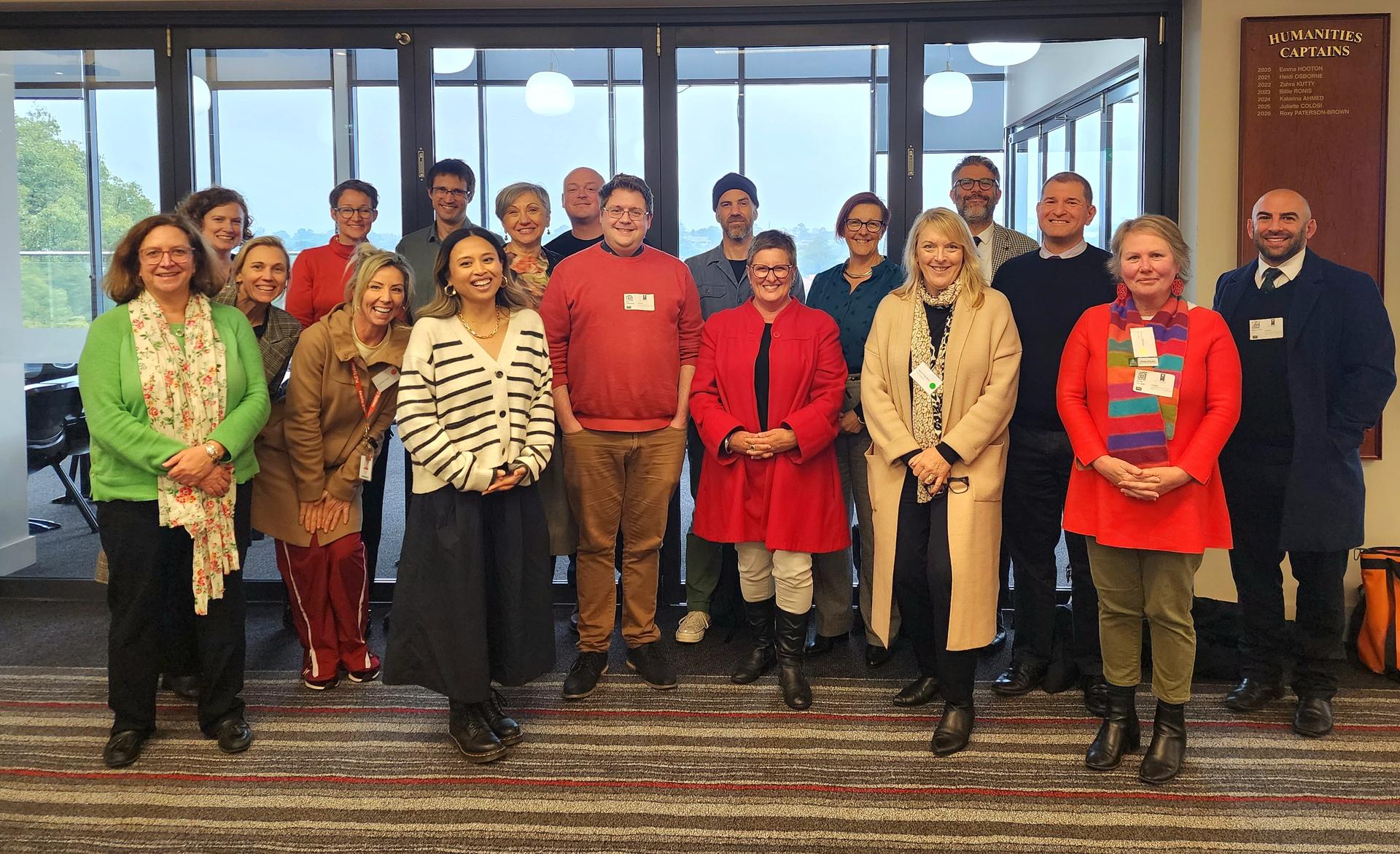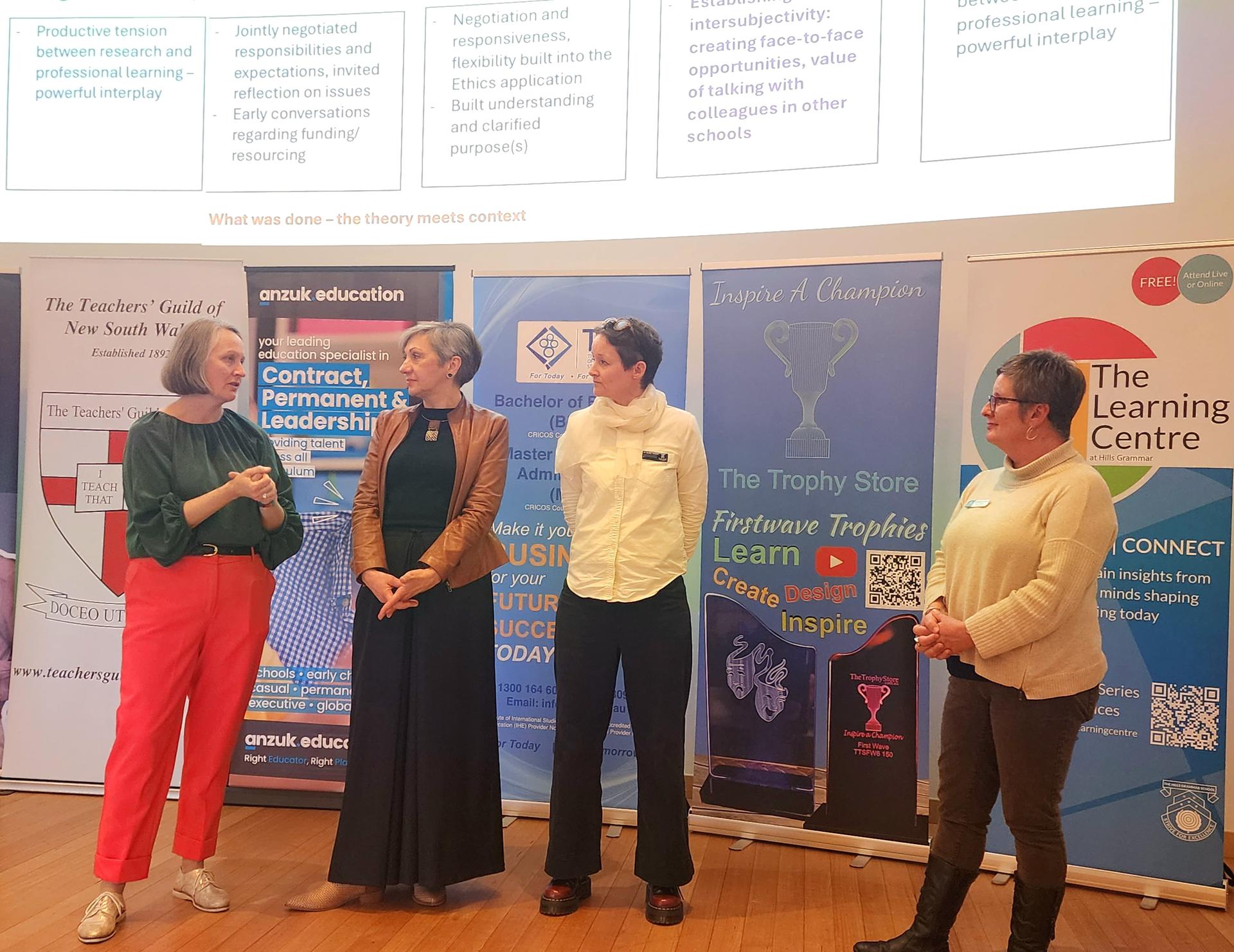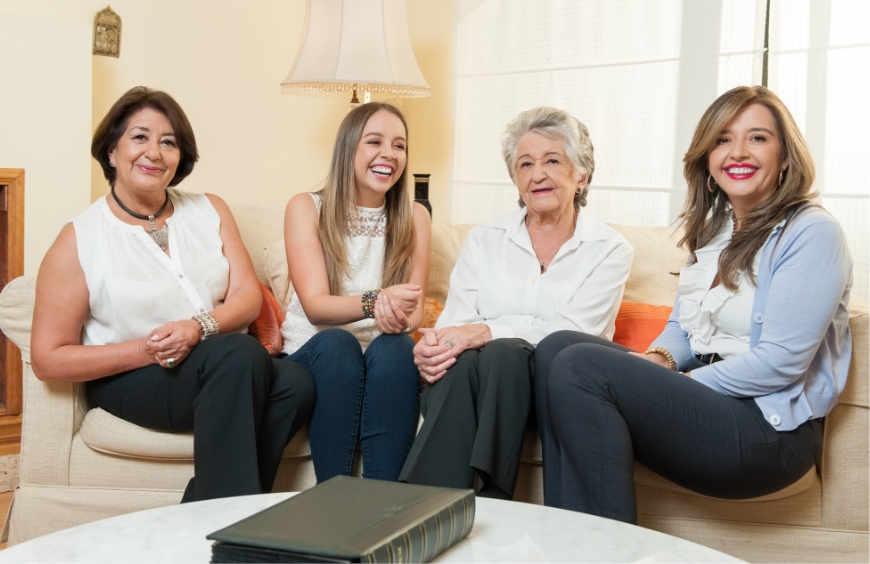How do we support young people in navigating the kinds of disagreement and uncertainty they’ll encounter throughout their personal, professional, and civic lives?
A team of experienced educators and researchers from four independent schools – Newington College, PLC Sydney, Pymble Ladies’ College and Trinity Grammar School – has worked with Associate Professor Simon Knight from the Transdisciplinary School at the University of Technology Sydney on a collaborative research project to answer this question. The aim is to help teachers explore topics involving complexity and uncertainty with their students.
Associate Professor Simon Knight is a co-founder of CREDS (Centre for Research on Education in Digital Society) at UTS, and a recipient of a 2023 ARC DECRA (Australian Research Council Discovery Early Career Research Award) Fellowship. Simon partnered with research and program leads from Newington College (Dr Britta Jensen), PLC Sydney (Dr Suzana Sukovic), Pymble Ladies' College (Dr Sarah Loch), and Trinity Grammar School (Dr Kimberley Pressick-Kilborn) to co-design a series of workshops called social labs. The labs included experienced teachers from the four schools who explored issues and best practices of teaching about uncertain and controversial topics.
The three social labs were hosted by Trinity Grammar School in May, Newington College in June, and PLC Sydney in July this year, providing opportunities for collaboration, networking, and professional development while contributing to the development of classroom resources.

Social Lab, PLC Sydney.
At the recent NSW Teachers' Research Guild conference at UTS, Britta, Kimberley, Sarah and Suzana reflected on the partnership in a joint presentation titled, ‘Research partnerships that provoke professional learning opportunities: An approach to engaging multiple schools in a collaborative project’.
Key insights from the partnership include recognition of the productive tension between research and professional learning, as well as the generosity and responsiveness of all participants contributing to a genuine culture of collaboration.

Sarah, Suzana, Britta and Kimberley at the NSW Teachers’ Guild 2025 Research Conference.
Teachers’ reflections:
I don’t quite remember what I expected walking into these workshops as I met Dr Simon Knight, the leader of the project, and my fellow teachers. Given the title of the social lab and the general feeling around teacher circles, perhaps I expected that there would be a sense of worry, of anxiety, a feeling of being beleaguered as classrooms feel increasingly complex to navigate in such challenging times.
But this was not the spirit of the group. Instead, what I found over the course of three workshops was an audacious optimism. Hopefulness, even. The goal of the workshop was to explore and evaluate materials and resources developed by UTS to help teachers navigate the inherent risks and tensions of learning. These materials were wonderful, evidently developed with great care and expertise. But these workshops, by Dr Knight’s design, were staged to privilege the discussions amongst workshop participants, and it was in those discussions that I felt like I struck gold, and remembered once again the great daring and creativity of educators.
(Faith Evangelista, English Teacher, PLC Sydney)
The workshop offered the rare privilege to sit with educators from different schools and disciplines and look at the shape of these big epistemological questions. How do we gently and wisely guide our students to navigate the inherent chaos and uncertainties of the hyper-evolving information economy? How do we model a spirit of adventurous enquiry when all the greater market forces ground us as teachers to be just efficient operators who fixate on content expertise? How do we model respectful disagreements in a democratic classroom where the world outside is polarising by the second? And, how do we attempt all this from a place of care for our students to instil in them greater agency and better skillsets to navigate a post-truth world which is overwhelmingly algorithmised.
(Pearl Thomas, a leading teacher in the Pymble Ladies' College Religion and Ethics team)
We are grateful to the teachers from the four schools who participated in the project:
- Newington College: Billy Stevenson, Janine Timillero and David Walls
- PLC Sydney: Faith Evangelista, Roberta Perkins, Elizabeth Simms and Alicia Smith
- Pymble Ladies’ College: Kerryl Howarth, Pearl Thomas, Caragh Warth and Nikki Wyse
- Trinity Grammar School: Ray Cachia, Nicole DeLosa, Andrea Folli, Tracy Getts and Neil Van Heerden



